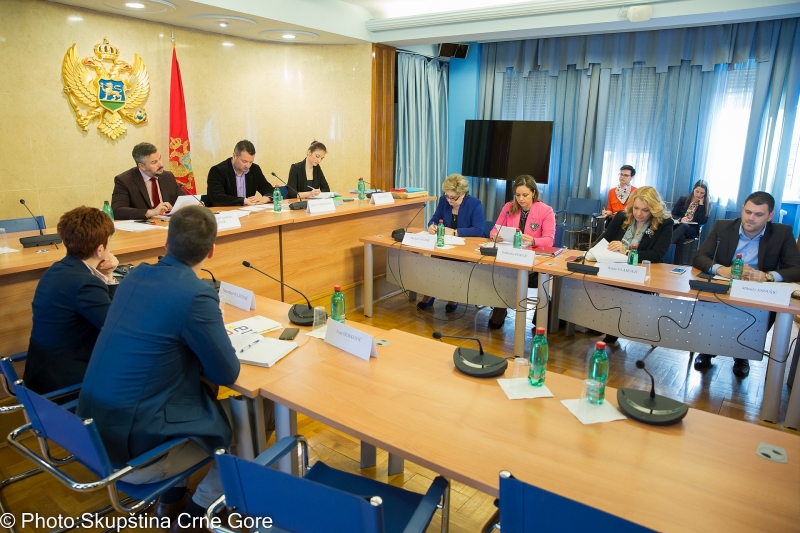At its meeting held today, with Minister of European Affairs Mr Aleksandar Andrija Pejović in attendance, members of the Committee on European Integration unanimously adopted the Fifth and the Sixth semi-annual report on the overall activities within the integration process of Montenegro to the European Union for the period January - July, and July - December 2016.
Presenting the reports, Minister Pejović pointed out that in the previous year Montenegro had opened negotiations in the following negotiating chapters: 11 - Agriculture and rural development, 12 - Food safety, veterinary and phytosanitary policy, 13 – Fisheries, and 19 - Social policy and employment, thus rounding up the number of opened chapters to 26, two out which had been provisionally closed. Furthermore, Mr Pejović noted that the reports also included recommendations of the Stabilisation and Association Parliamentary Committee in part relating to the political criteria, judiciary, rights of persons with disabilities, gender equality and domestic violence, and protection of the environment and the issue of the Ulcinj Saltworks.
The Committee members were interested in the opinion of the Minister with regard to assessment of the pace of negotiations in the recently adopted European Parliament’s Resolution on Montenegro, what was the area of stronger action in order to increase the degree of fulfilment of commitments, as well as what were the experiences from the joint committee meetings with neighbouring countries in the context of cooperation in the EU accession process.
In his response, Minister Pejović pointed out that out of seven chapters that remained to be opened, additional effort in form of adopting legal solutions was needed only in one chapter 8 - Competition. For the remaining chapters Montenegro already fulfilled all of its obligations and opening benchmarks, and some of them are already in the procedure of being opened in the EU institutions. Regarding the degree of fulfilling obligations from the accession process, Mr Pejović believed that in that sense good quality of planning was essential; he reiterated that the fulfilment of obligations from the Montenegro’s Programme of Accession to the European Union was viewed from the aspect of proposing legislative acts by the Government, but not from the aspect of their adoption in the Parliament, thus sometimes not providing a realistic image in terms of implementation of the planned legislative framework.
It was decided at the meeting that the Committee would submit to the Parliament the report with the proposal to adopt the semi-annual reports.












